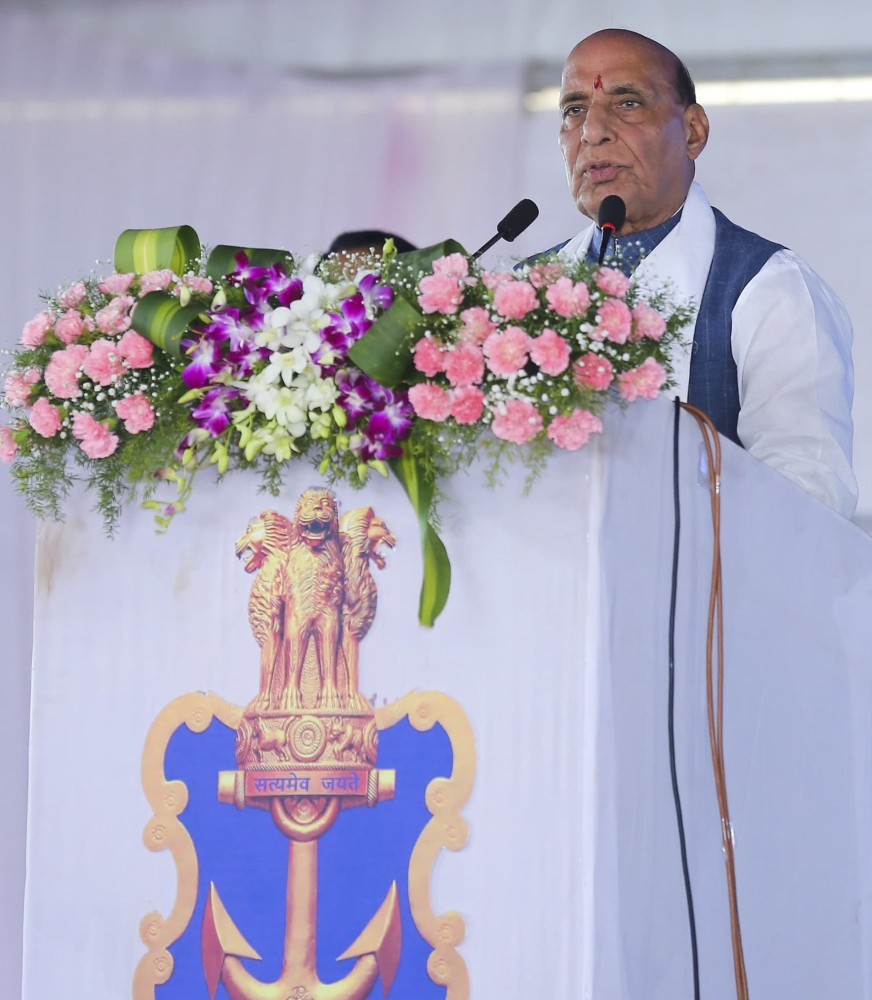
Defence Minister Rajnath Singh speaks during the foundation stone laying for Very Low Frequency (VLF) Station in Vikarabad, Telangana, to bolster Navy's operational readiness. (Photo: @SpokespersonMoD / PTI)
VIKARABAD, TELANGANA (PTI): In a message to the neighbouring countries who share maritime boundaries with India, Defence Minister Rajnath Singh on Tuesday stressed that maritime security is a collective effort and inviting "outside forces" to the doorstep would dent efforts for unity.
Speaking after laying the foundation stone for a Very Low Frequency (VLF) Naval Station in Damagundam forest area of Vikarabad district, he said maintaining peace in the Bay of Bengal and Indian Ocean Region (IOR) should be top priority.
Cooperation of India’s friendly nations is essential in this effort, as even if one country is left out, the nation's security wheel breaks, he said.
Describing the Indian Navy as "the biggest guarantee of peace in the entire IOR, including the Bay
of Bengal," Singh highlighted the need to continuously empower the defence wing in view of the ever-growing global interest in the Indian Ocean Region.
"Bharat believes in bringing all together and not breaking. That is why we are making every possible step to take the friendly neighbouring nations along," he said.
The VLF naval station will prove to be very important for maritime forces when it becomes functional.
Today, many countries have shifted their focus towards marine resources in the region, he said. If India has to secure its commercial and security interests and remain a strong deep sea force, it is necessary to possess state-of-the-art platforms/equipment and a strong communication system, Singh pointed out.
Several ships and other platforms of Indian Navy are spread across the entire Indo-Pacific Region (IOR) and the sphere of interest extends throughout the region, from the Malacca Strait, to the Gulf of Aden, Persian Gulf, and the eastern coast of Africa, he added.
"In the Indian Ocean Region, the Indian Navy has also emerged as the first responder and net security partner," Singh said.
Noting that the upcoming VLF station would expand the military capabilities of the country, proving to be a boon to the Armed Forces, he said the high-tech centre, once operational, would not just be a military establishment, but a strategic asset of national importance.
Allaying concerns about the impact of the project on the environment, Singh assured that all environmental conditions are being taken care of.
When it comes to national security and sovereignty, he urged people of the country rise above ideologies, religions and sects and stand unitedly for the country which is a specialty of Bharat.
Even different political parties which have different ideologies come together on a single platform when it comes to national security, Singh said adding whether it is different state governments or regional parties, all of them speak in one voice on the issue of national security. "I feel today's programme is a big example of this," the Union Minister said.
In his speech, Navy Chief Admiral Dinesh K Tripathi said that the project is set to herald a new chapter in Indian Navy's communication capabilities by ensuring a secure, robust, responsive, and reliable command, control and communication network across the oceans.
“This VLF station would play an important role in enabling the seamless secure worldwide communication, including most importantly, with our dived submarines, thus ensuring their stealth and enhanced effectiveness,” he said.
The upcoming station in Vikarabad is the Navy's second VLF communication transmission station in the country.
INS Kattabomman Radar Station at Tirunelveli in Tamil Nadu was the first of its kind.
The facility, built at a cost of Rs 3,200 crore, will be spread across 2,900 acres. It will bolster Indian Navy’s operational readiness, ensuring effective command and control capabilities in challenging maritime environments. It will play a pivotal role in strengthening the Naval communication infrastructure, enabling reliable and secure transmission over long distances, an official release said.
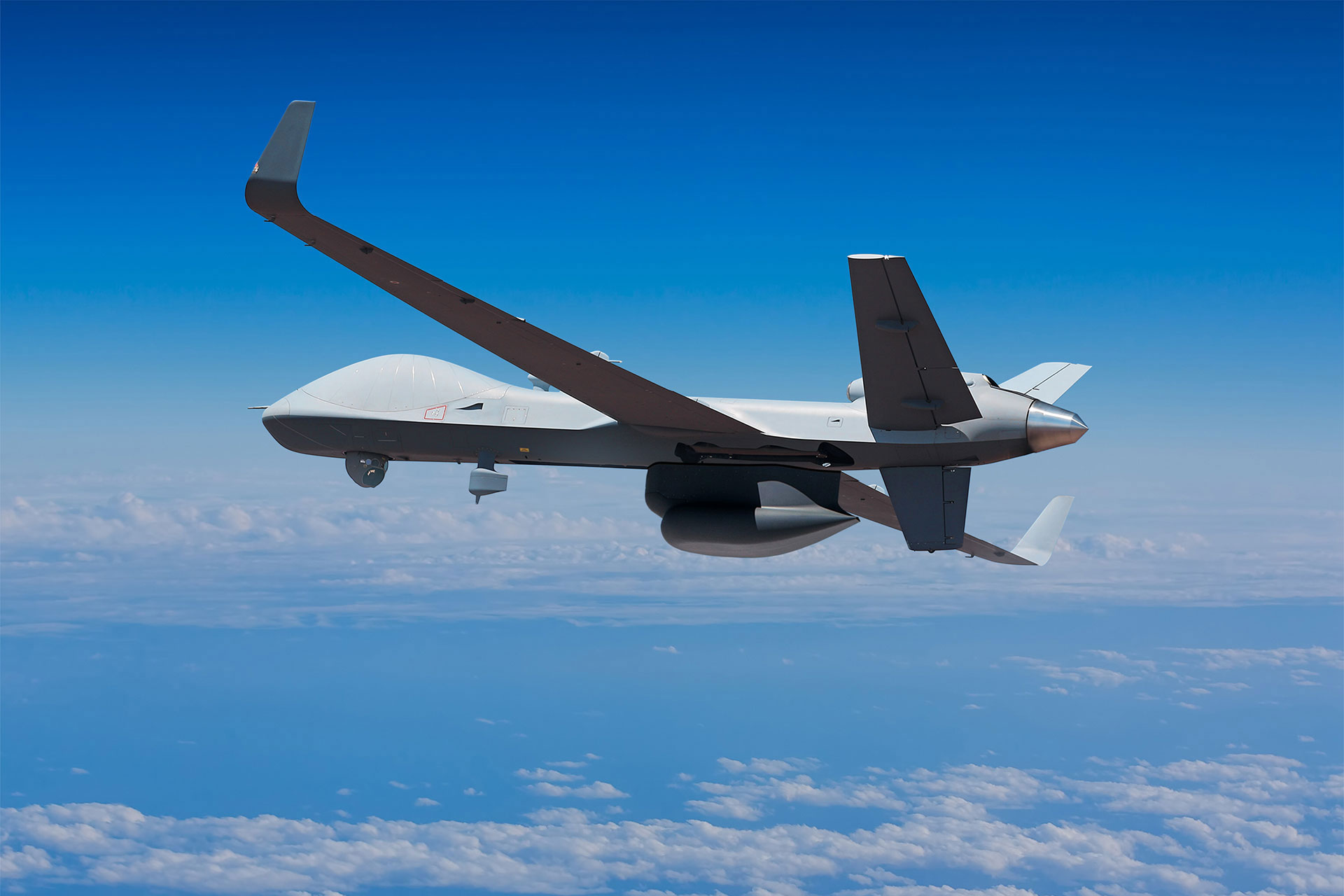 Previous Article
Previous Article Next Article
Next Article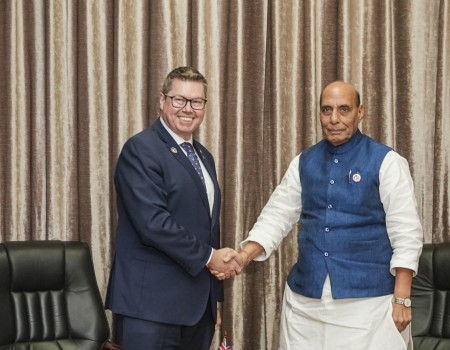
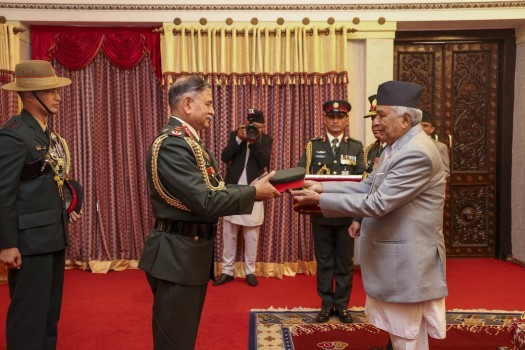
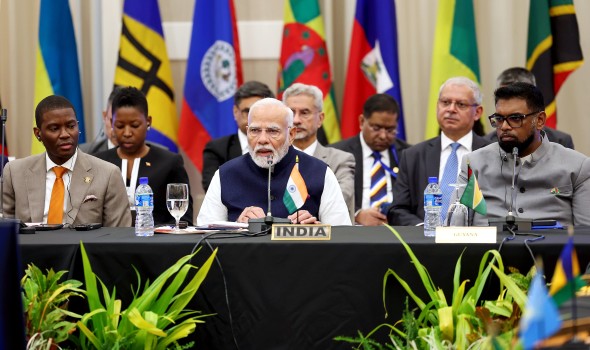
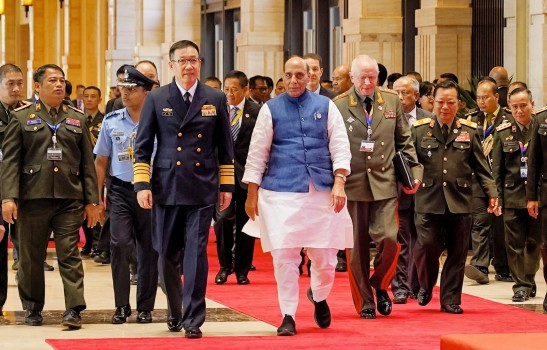

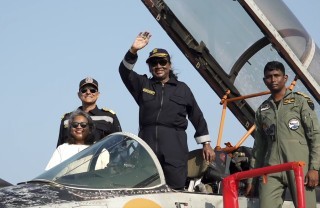
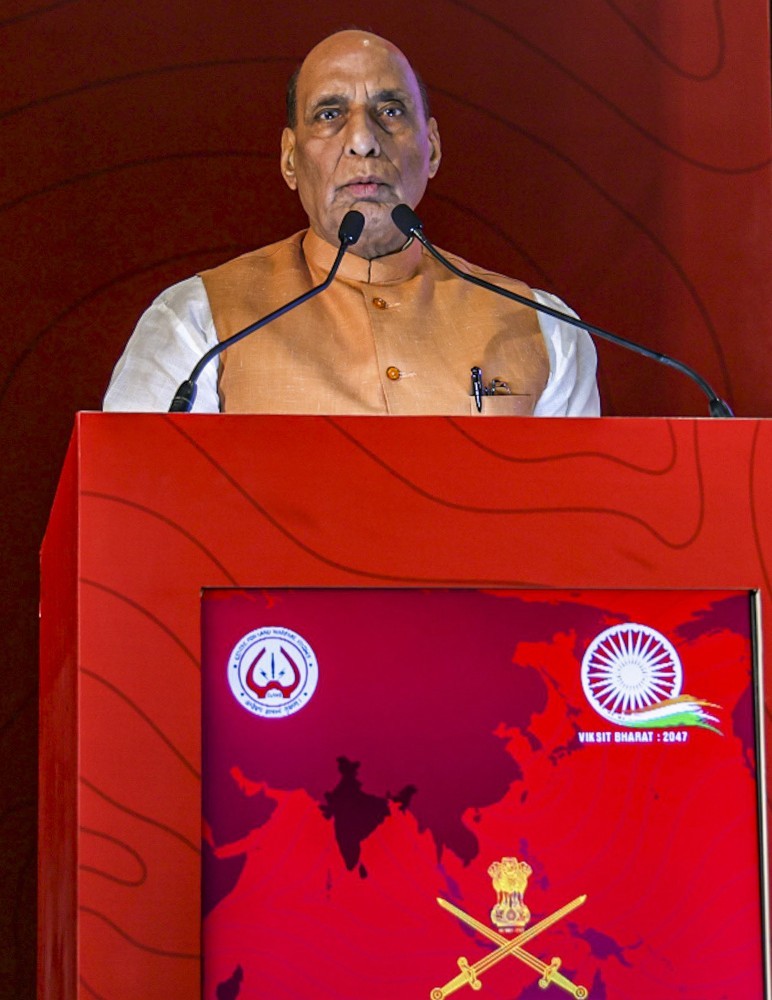





The Indian Air Force, in its flight trials evaluation report submitted before the Defence Ministry l..
view articleAn insight into the Medium Multi-Role Combat Aircraft competition...
view articleSky enthusiasts can now spot the International Space Station (ISS) commanded by Indian-American astr..
view article